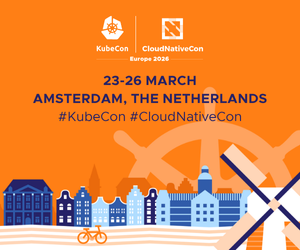As systems get more distributed, the data infrastructure management challenge gets tougher. Businesses now rely on real-time analytics, intelligent automation, and always-on applications, all of which require fast, scalable, and resilient data platforms. Open-source technologies like Apache Kafka, PostgreSQL, and OpenSearch have become the foundation of this transformation.
As an AI-ready open-source data platform, Aiven allows you to stream, store, and serve data across major cloud providers. Aiven’s managed platform addresses this pain point, so you can avoid the maintenance expenses and get production-grade open-source tools.
Here’s a technical look at 10 data infrastructure challenges and how Aiven solves them.
1. Managing multi-cloud deployments without overhead
In a world where data residency, cost optimization, and service redundancy require multi-cloud strategies, running data services across AWS, GCP, Azure, or other platforms is far from easy.
Aiven removes these barriers by providing a consistent control plane across all supported clouds. Services like Apache Kafka, PostgreSQL, MySQL, and OpenSearch can be provisioned and managed the same way across clouds, so cross-cloud migrations and hybrid deployments are not only possible but seamless.
2. Preventing downtime with automated failover and monitoring
High availability is a minimum requirement for production systems. Unplanned downtime can cause service interruptions, break SLAs, and damage customer trust.
Aiven has fault-tolerant, self-healing services with automated failover and monitoring. For example, Aiven for PostgreSQL has automatic read replica promotion and disk recovery without user intervention. Kafka clusters have built-in health checks and automated rebalancing. Aiven’s automated failover matches this, reduces mean time to recovery (MTTR), and minimizes disruption.
3. Scaling databases and messaging systems with zero downtime
Scaling open-source systems like Kafka or PostgreSQL requires planning: changing partitions, tuning indexes, and sizing nodes. Aiven makes horizontal and vertical scaling easy. Kafka brokers can be added or resized on the fly with automatic partition rebalancing. PostgreSQL clusters can scale vertically with automatic parameter tuning. Aiven’s database optimizer even provides recommendations for query and index improvements.
4. Observability in every service
Observability is key to debugging and performance optimization. But integrating Prometheus, Grafana, or OpenSearch across a polyglot stack is a pain and often fragmented.
Aiven has observability built in. All services emit metrics by default and can be connected to Grafana dashboards or exported to external platforms like Datadog. Aiven for OpenSearch enables log centralization, and Aiven for Metrics aggregates system-wide telemetry.
5. Security and compliance at scale
Securing open-source software requires expertise in encryption, authentication, access control, and audit logging. At enterprise scale, this becomes a maintenance burden and a compliance risk.
Aiven has security built in. All services are encrypted in transit and at rest by default. Access control is managed through role-based mechanisms and IP whitelisting. Services can be deployed into private networks, and audit logs are easily accessible. This allows organizations to be secure, meet industry regulations, and reduce the risk of breaches or misconfigurations.
6. Eliminate cloud waste with smart resource management
Over-provisioning for peak use is a common practice, but it leads to cloud waste and unnecessary cost. Under-provisioning results in performance degradation and reliability issues.
Aiven provides fine-grained control over service sizing and transparent usage metrics. Teams can monitor memory, CPU, disk usage, and IOPS to right-size services in real time. Scheduled scaling and auto-resizing allow teams to tune infrastructure to match demand while maintaining SLAs.
7. Get to value faster with automation and APIs
Manual provisioning, patching, and configuration slow down development cycles and introduce inconsistency across environments. Building automation from scratch is time-consuming and error-prone.
Aiven has a full suite of automation tools, including a Terraform provider, RESTful API, and CLI. Teams can define infrastructure as code, enabling repeatable and auditable environments from dev to prod. Integrations with CI/CD pipelines allow for service provisioning and teardown, streamlining development workflows, and accelerating deployment time.
8. Simplifying event-driven architectures with streaming services
Building event-driven systems requires coordinating streaming platforms like Kafka, Flink, and Kafka Connect. These technologies offer massive throughput and real-time processing power, but managing their internals, scaling, and data retention policies can be overwhelming.
Aiven simplifies deploying and managing event streaming architectures. Kafka clusters come with pre-tuned settings, observability, access control, and schema registry integrations. Flink has real-time transformations, and Kafka Connect simplifies integrations with external systems. These components work together to build responsive applications without the need to know the internals.
9. Supporting specialized workloads like vector search and time-series processing
Modern data applications require purpose-built databases to support use cases like vector similarity search for AI or high-volume time-series data for observability and IoT.
Aiven supports advanced workloads with services like ClickHouse for real-time analytics, OpenSearch for log and document indexing, and PostgreSQL with vector extensions for AI search and recommendation. These services are pre-configured for performance and can be tailored to niche workloads without infrastructure expertise, so teams can unlock new capabilities with minimal ramp-up.
10. Enabling team governance across the organization
As organizations grow, teams across departments need access to data infrastructure, whether it’s data science, product engineering, or analytics. Without governance, environments become fragmented, insecure, and hard to manage.
Aiven provides centralized access controls, billing visibility, and audit logging across all services and users. Admins can manage workspaces, define roles, and enforce usage policies at the platform level. This governance model allows teams to move fast within guardrails, balancing autonomy and oversight.
How Aiven supports diverse industries and use cases
Aiven isn’t just for developers, it’s for industries from fintech and e-commerce to energy and AI. Solutions include:
- AI & vector databases: Boost semantic search and real-time ML pipelines with Aiven’s vector database extensions.
- Event streaming: Build microservices and real-time analytics pipelines with Apache Kafka and Flink.
- IoT: Ingest and process time-series data at scale with Cassandra, Kafka Streams, and Flink.
- Retail & supply chain: Enable real-time personalization and logistics optimization with streaming data.
- Software & SaaS: Simplify observability and CI/CD across distributed architectures.
By focusing on developer experience, security, and performance, Aiven lets you innovate faster without the hassle of infrastructure management.









